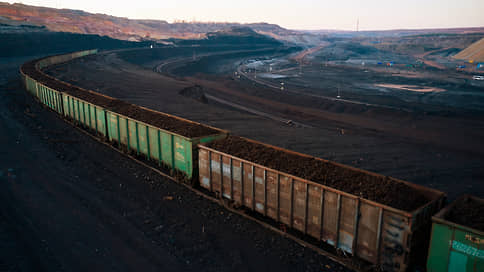South Korea may limit coal imports from Russia at last year’s level
[ad_1]

South Korea may limit the import of thermal coal from Russia at the level of last year: according to Platts, such recommendations were given to local state-owned companies. South Korea is an unfriendly country, but has not yet introduced any restrictions on Russian coal. Seoul’s recommendations do not apply to private energy companies, which can buy Russian fuel both under long-term contracts and on a spot basis. According to analysts, last year’s import volume was already quite high, and the ban, which is still a recommendation, may force Korean companies to transfer part of their supplies from the Russian Federation to next year.
South Korea plans to limit imports of Russian coal at last year’s level, Platts writes, citing its own sources. According to the publication, the South Korean government has asked state-owned generating companies to limit the purchase of Russian coal on the spot market. According to Kpler data, which Kommersant reviewed, in 2022 Russia supplied 26 million tons of coal to South Korea, and in the eight months of 2023 – 15.4 million tons, which corresponds to the same period last year.
South Korea has not introduced a formal ban on Russian coal. However, as Argus noted in its presentation “Global coal outlook 2023 and beyond,” state-owned utilities did not purchase Russian coal through tenders, fearing reputational risk. According to Platts, South Korea’s POSCO International Corporation and Korea Southern Power Co Ltd have announced tenders to import 174 thousand tons of coal between October and November and 480 thousand tons in 2023-2025, respectively, noting in their tender documents that they will not buy coal from Russia. Private energy companies are not limited in any way and purchase Russian coal both under long-term deals and on spot. If restrictions are introduced, demand for spot coal from Australia will increase.
Russian coal is popular in South Korea, as suppliers offer it at a discount. South Korean utilities estimated the minimum discount at $10–15 per ton due to geopolitical risks. There is no evidence of problems with payments for deliveries to South Korea, since transactions are carried out through Dubai, Argus previously noted.
Information about an informal restriction on purchases of Russian coal for state-owned companies in South Korea came against the backdrop of a visit to Russia by North Korean leader Kim Jong-un (see page 6). According to Deputy Foreign Minister of the Russian Federation Andrei Rudenko, the negotiations will discuss the Khasan-Rajin transport project, which involves delivering goods by rail from Russia to the North Korean port of Rajin with subsequent transportation by sea to the ports of South Korea or other countries. Since 2013, the project has been virtually completely suspended due to UN and US sanctions against North Korea.
South Korea imported 21 million tons of Russian coal in 2018. Thus, last year’s export volume looks quite high, notes Boris Krasnozhenov from Alfa Bank. On the other hand, growth in demand for thermal coal in South Korea is not guaranteed, and with the development of renewable energy sources, it can be seen to decline over the longer term. Private companies in South Korea will most likely continue to purchase Russian coal.
According to market participants, five state-owned energy companies in South Korea will be forced to postpone the import of approximately 1 million tons of Russian thermal coal to 2024, since they had previously entered into contracts with Russian coal miners for the shipment of 14 million tons by the end of this year, says the head of consulting at Neft Research. Alexander Kotov.
According to preliminary information from market participants, the expert says, for now the restrictions are advisory in nature. If South Korea chooses the Japanese scenario, which provides for a complete ban on the purchase of Russian coal, then discounting will become meaningless. “For now, Russian coal, even without additional discounts, is the preferred fuel for procurement at tenders for South Korean companies than the more expensive Australian coal,” he says.
[ad_2]
Source link





